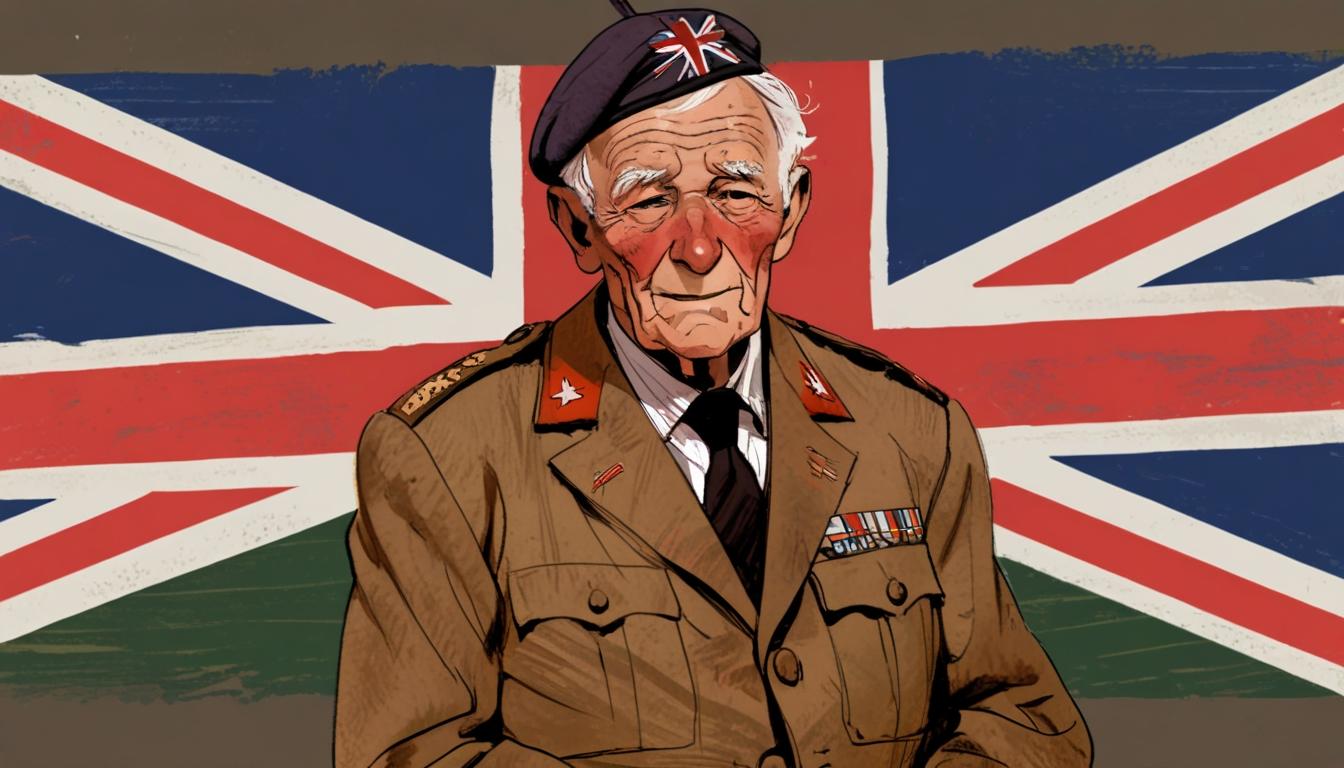Concerns of War Veterans Highlight Traditional British Values Amidst Political Turmoil
As World War Two veterans approach the twilight of their lives, many express growing anxiety about the future of British values. This sentiment was poignantly echoed during a commemorative lunch hosted by Nigel Farage, leader of Reform UK, to mark the 80th anniversary of Victory in Europe (VE) Day. Amidst the celebrations, the bond between the aging veterans and Farage underscored a shared commitment to values that many feel are eroding in modern Britain.
Farage, speaking to attendees including centenarians Dorothea Barron, John King, and Jim O'Dwyer, articulated his belief that these veterans epitomise the essence of duty and dedication to family and community. He remarked, “They’re concerned about the direction, the drift of this country. And you know what they’re really concerned about? Values.” The leader's comments reflect a broader narrative among some political factions that the essence of British identity is under threat from various societal changes.
The event not only served as a solemn remembrance of fallen heroes but also highlighted the apprehensions of the veterans present. Barron, a former member of the Women’s Royal Naval Service, lamented the perceived lack of respect among younger generations, attributing this shift to the educational system's failure to adequately impart the realities of the Second World War. “Schools are failing to teach children about the realities of the Second World War,” she noted. Her reflections resonate with fears voiced by several veterans regarding a loss of connection to the values they fought to defend.
Farage’s assertions extend to concerns surrounding immigration, where he claimed that recent arrivals do not share the values that underpin British society. “Many of those that have come in the last 20 years do not share our values,” he stated, hinting at a sentiment that is increasingly prevalent in nationalist discourse. This perspective has drawn criticism from various political commentators and has heightened the divide regarding how immigration and integration are perceived in contemporary Britain.
In his observations, Farage echoed sentiments found in more extensive discussions around British values and national identity. The importance of promoting a sense of patriotism, particularly through education, is increasingly recognised as necessary for fostering a cohesive society. The ongoing debate centres on the balance between embracing diversity and maintaining a national identity that resonates with the ideals cherished by earlier generations.
Critics of Farage’s views highlight the potential dangers of such rhetoric, suggesting that it could perpetuate divisions within society. Statements he made suggesting that certain demographics, including a notable percentage of British Muslims, do not align with British values have sparked substantial backlash. Diverse groups argue that his remarks risk fostering a climate of fear and misunderstanding, obscuring the contributions these communities make to the fabric of British life.
Simultaneously, supporters of Farage argue that he is merely articulating the unease many feel as cultural norms shift. Understanding these sentiments could be pivotal for political parties hoping to engage with and address such citizen concerns effectively. The need for a dialogue that respects the complexity of identity while honouring the historical values that shape the nation is vital for bridging gaps between varying perspectives.
As the last surviving World War Two veterans share their wisdom and worries, it is clear that their experiences underpin a larger conversation about the direction of British society. The call to rekindle national pride and ensure the core tenets of British values are upheld is one that resonates deeply, providing a crucial lens through which to view the evolving landscape of national identity amidst a changing world.
##Reference Map:
- Paragraph 1 – [1], [2]
- Paragraph 2 – [1], [2]
- Paragraph 3 – [1], [2]
- Paragraph 4 – [1], [4]
- Paragraph 5 – [5]
- Paragraph 6 – [3]
Source: Noah Wire Services
